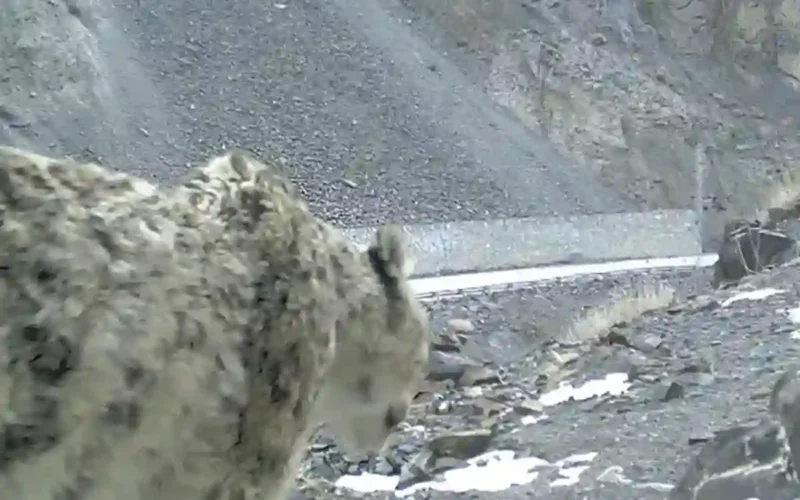Pakistan’s iconic snow leopard is facing new survival challenges as expanding road networks and infrastructure developments force the endangered species closer to human settlements, WWF-Pakistan warned on Snow Leopard Day 2025.
According to the WWF’s Road Ecology Study, the first of its kind in Pakistan, highways, power transmission lines, and other linear infrastructure projects are fragmenting habitats and disrupting snow leopard migration routes.
The study found that heavy traffic along the Karakoram Highway has increased both noise and air pollution, which may alter breeding and movement patterns of wildlife in Khunjerab National Park.
Visit Times of Karachi website for the latest news-related content
Experts noted that the combination of road expansion and overgrazing by livestock has reduced populations of ibex and blue sheep, the snow leopard’s primary prey species, further endangering their food chain.
WWF-Pakistan has worked on snow leopard conservation since the early 1990s in collaboration with regional authorities. Pakistan is one of only twelve countries home to the Panthera uncia species.
As humans encroach deeper into snow leopard territory, WWF warns of a potential increase in human-wildlife conflict, posing additional risks to both communities and animals.
READ: CM Sindh orders transfer of Karachi Zoo’s Rano Bear to Islamabad
To reduce conflict, WWF-Pakistan and the Lahore University of Management Sciences have installed AI-powered camera traps at key hotspots. These cameras detect and record wildlife movement in real time.
In early 2025, one of these systems accurately identified a snow leopard, marking a milestone in the use of artificial intelligence for conservation and coexistence.
WWF has also introduced SMART (Spatial Monitoring and Reporting Tool) technology with the Wildlife Departments of Khyber Pakhtunkhwa and Gilgit-Baltistan to improve protection efforts.
The SMART system combines field patrol data, mapping, and analytics to track snow leopard movement, detect poaching, and identify emerging threats such as habitat loss or disease.
READ: Cammie becomes Pakistan’s first Camel to receive prosthetic limb
Rab Nawaz, Senior Director Programmes at WWF-Pakistan, said that while infrastructure promotes regional connectivity, poorly planned roads can devastate mountain ecosystems if not managed sustainably.
“Through SMART technology and AI tools, we are tracking populations, identifying threats, and finding solutions that protect both communities and wildlife,” Nawaz said.
WWF emphasized that balancing infrastructure growth with ecosystem preservation is critical to ensuring that Pakistan’s mountain landscapes continue to sustain both people and wildlife.











